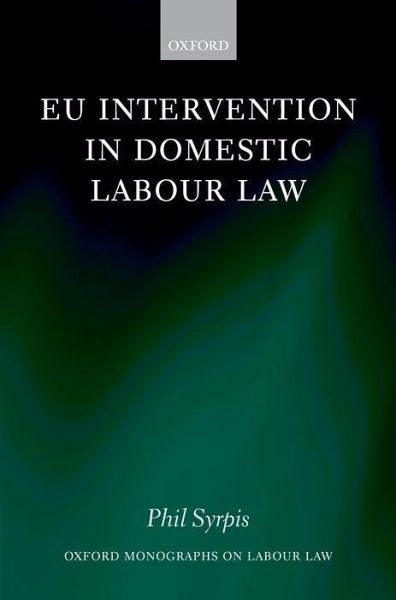
Eu Intervention in Domestic Labour Law
Versandkostenfrei!
Versandfertig in 1-2 Wochen
172,99 €
inkl. MwSt.

PAYBACK Punkte
86 °P sammeln!
Instead it provides a framework to enable the reader to think about the role that the EU has, and should, play in this field, and argues that European level intervention can make a valuable contribution to the making of labour law in European Member States.
This monograph explores the case for European Union intervention in domestic labour law. It sets out the various arguments which can be made for EU intervention, and goes on to consider the different ways in which the EU has intervened, exploring the implications of the shifts in policy-making technique. It provides a framework to enable the reader to think about the role the EU does, and should, play in this field.














